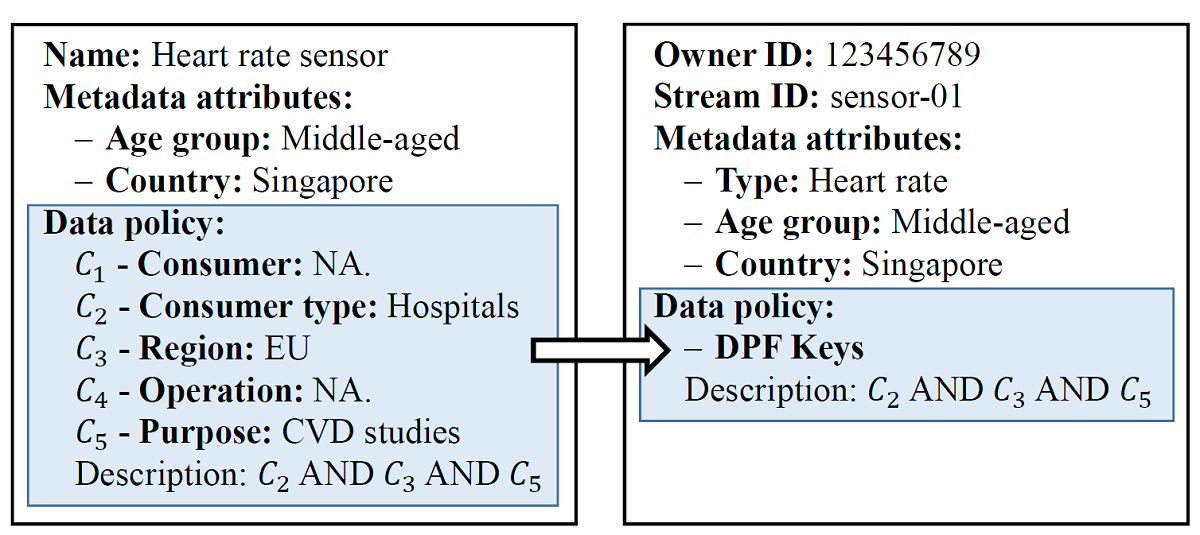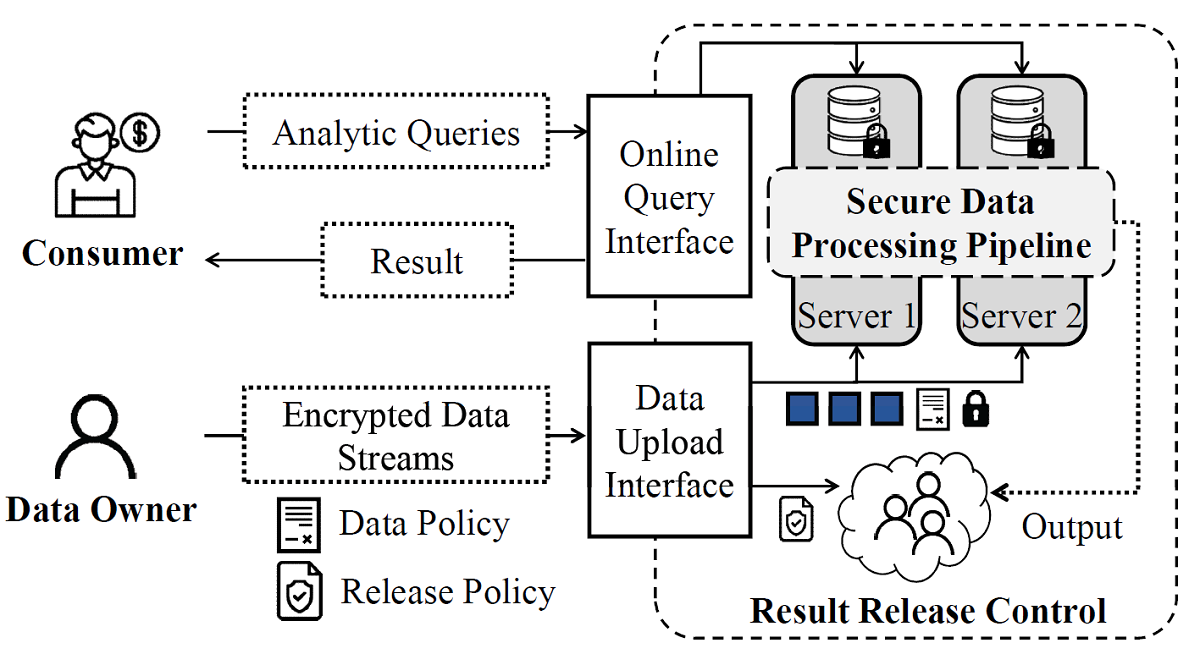Novel system prevents personal metadata leakage from online behaviour for privacy protection
Privacy preservation is the most challenging issue for data collection. Even if the data is encrypted, metadata, such as users’ online behaviour, may lead to identity exposure. A research team from City University of Hong Kong (CityU) recently developed a metadata-hiding analytic system, called Vizards, which enables data owners to securely define their data authorisation and control who can use their data, providing potential applications in various sectors, such as precision medical research.
“Imagine if you send a letter to a friend called Alice, and the envelope is sealed so that no one can read the content. But anyone can see that ‘you sent Alice a letter’ since her address is on the envelope. This is what we called ‘side-information’, also known as ‘metadata’ in the virtual world,” said Professor Wang Cong, Professor in the Department of Computer Science at CityU.
Examples of very basic metadata for document files are author, date created, date modified and file size. But a wide range of other information, from the frequency of visits to an e-commerce site to a record of participating in a cancer study, is also regarded as metadata. “Third parties may not have access to information on the purchased products or studies, but they will have sufficient metadata almost equivalent to the underlying content,” Professor Wang explained. “For example, the person who participated in the cancer study may often visit a health product platform, which may imply that the data owner has cancer or another illness.”
Sufficient metadata is almost equivalent to personal tracking
Nowadays, privacy protection relies basically on the practices of data collection platforms, so data owners have no choice but to trust the policies despite the potential risk of data leakage. The research team took on the challenge to remove this "blind" trust with data collection platforms and big tech companies and developed a novel system, called Vizard, to address metadata leakage concerns.
To design Vizard as a full-fledged metadata-protected data collection and analytical platform, Professor Wang’s team utilized a cryptographic tool, called “distributed point function” (DPF). DPF is a generic building block that facilitates secure/encrypted computations, which can be used to anonymously retrieve data during the computation process. Based on DPF, Professor Wang’s team developed the Vizard system with stream-specific pre-processing, encryption and throughput enhancement techniques.

Second, Vizard is based on an owner-centric control model. Each owner can generate tailored requirements by simply inserting operating keys like “AND”, “OR” and “NOT” to control the use of their personal data. For example, owners might want to authorise their data for use only by hospitals in Hong Kong, so the operating keys would be 1) type= hospitals AND 2) region= HK.
The research team demonstrated the efficiency of the novel system. Assuming that Vizard has stored 10,000 owner data ciphertexts and that each owner has specified a data policy that controls which consumers can use their data, it takes only 4.6 seconds for Vizard to handle a data-access query.
Metadata-hiding system enhances data-driven research
This breakthrough design builds on the team’s previous work on practical data analytic system. The system can process encrypted data without decrypting, which is different from existing data processing pipelines and prevents hackers from mining data.

To further protect personal data, a “Result Release Control Committee” (RCC) can be formed by a set of stakeholders, such as data owners and government agencies. Data owners can now jointly set rules related to how the results should be protected before release. For example, they can request correctness verification, privacy protection and reward payments before releasing the results to the data consumers (inquirers). The result release rules will be enforced by the RCC with decentralized trust.
“Our proposed metadata-hiding encrypted data-sharing system can be used in various sectors, like healthcare, business and government, where big data support is needed for more accurate decision making. For example, hospitals in different regions can securely share their patients' data for more accurate disease diagnosis and precision medicine research,” Professor Wang added.
Their findings were presented at the ACM flagship security conference, ACM Conference on Computer and Communications Security (CCS) 2022, under the title “Vizard: A Metadata-hiding Data Analytic System with End-to-End Policy Controls”, with an acceptance ratio of 22.5%.

The first author of the paper is Dr Cai Chengjun, then-postdoc in Professor Wang’s group, and now a research fellow at City University of Hong Kong (Dongguan). The corresponding author is Professor Wang. Other collaborators are Professor Jia Xiaohua, Head and Chair Professor in the Department of Computer Science at CityU, Mr Zang Yichen, a PhD student in the same department, and Professor Wang Qian, in the School of Cyber Science and Engineering at Wuhan University.
The research was supported by the Hong Kong Research Grants Council, InnoHK and the National Natural Science Foundation of China.